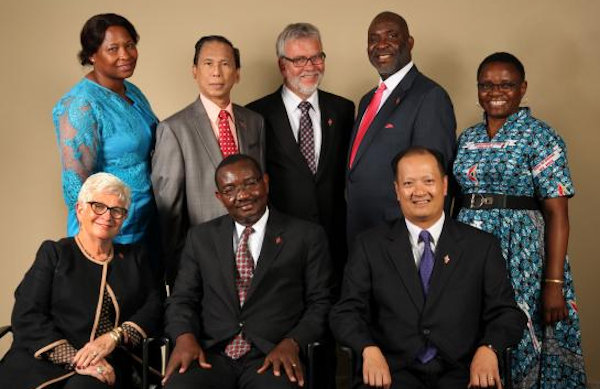Boards of ordained ministry must consider sexual orientation of candidates.
KATHY L. GILBERT
United Methodist News Service
Two more decisions concerning acceptance of LGBTQ people as church leaders in The United Methodist Church are being met with pain, anger and approval across the denomination’s diverse worldwide membership.
In decisions related to the New York and Northern Illinois conferences, The United Methodist Church’s Judicial Council ruled April 28 that conference boards of ordained ministry must consider all requirements for its candidates, including “fidelity in marriage and celibacy in singleness.”
The New York and Northern Illinois boards of ordained ministry announced last year that they would not consider sexual orientation in evaluating clergy, even if that individual has a spouse of the same gender.
The court’s latest rulings say that sexual orientation must be considered.
In response to the rulings, bishops of each conference affirmed the work of their boards of ordained ministry in seeking the best candidates for ministry.
“During the few short months that I have been in this annual conference I have come to believe that our current board of ordained ministry is filled with highly competent and committed servants of Christ who bring integrity and clear vision to their work,” said New York Area Bishop Thomas J. Bickerton in a statement.
“I trust that their examination of candidates is thorough and comprehensive in nature,” Bickerton said.
He said the decision by the high court would be properly reviewed by the New York Conference Board of Ordained Ministry.
Bishop Sally Dyck, Northern Illinois Conference, thanked the board of ordained ministry in her conference for “dedicated service” and affirmed that the board always makes full examinations of all candidates for ministry.
“The divide in our views about how the church deals with matters concerning human sexuality are profound and will require continuing prayerful and careful attention,” she said in a statement. “But I am deeply concerned that elements within The United Methodist Church continue to obsess on human sexuality while our communities and world around us are in such great need.”
She said a persistent focus on the different views on LGBTQ people does not communicate the “highest ideals of Christian living.”
However, the Rev. Forbes Matonga, director of the Nyadire Mission in Zimbabwe and a past delegate to General Conference, applauded the decisions as key to the church staying united.
“The boards of ordained ministry that refuse to take legal action which is within the law of the church must be dealt with. No organ or structure of the church is above the law,” he said.
“In Africa, we are of the view that those who actually practice homosexuality are a small percentage and believe that if the Council of Bishops has the political will to deal with this matter as the Judicial Council has done, all this polarization will come to an end,” he said.
Groups advocating full inclusion of LGBTQ people found the rulings hurtful.
Methodists In New Directions released a statement saying the council rulings “do grave psychic and spiritual harm” to LGBTQ people among the clergy and laity of the church.
“The United Methodist Judicial Council has spoken and its rulings against LGBTQ persons are contrary to the teachings of Jesus and to the will of God.”
The decisions reassert the system-wide discrimination that target LGBTQ people, wrote Matt Berryman, director of the Reconciling Ministries Network.
“We must never lose sight of the tremendous scandal that lies at the heart of the church’s policies embedded in disgust, shame, and fear. There is not now, nor has there ever been, any excuse or justifiable reason to condone or sanction the mistreatment of LGBTQ persons. What there is now, however, is a clear and unadulterated vision of judgment that awaits all those who continue to uphold such evil, injustice, and oppression.”
Last Updated on November 4, 2022

